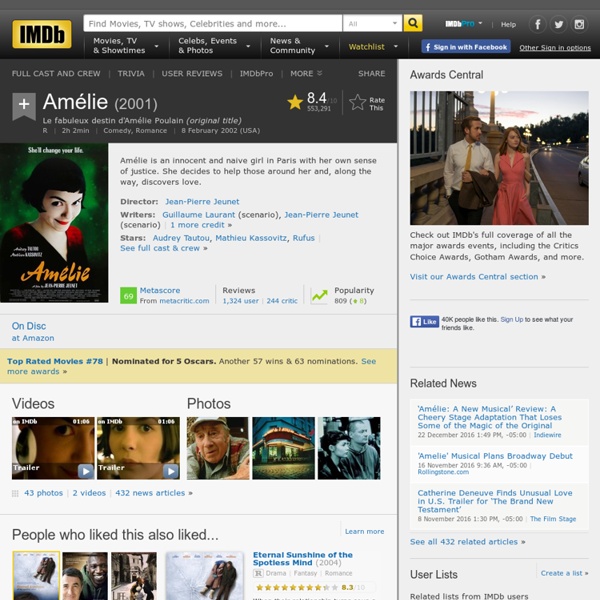



Shining (1980) I Heart Huckabees (2004 Saltos y Cascadas de Misiones Murmullo y transparencia de las aguas, la región turística de Los Saltos y Cascadas ocupa el centro este de la provincia de Misiones arrullando a localidades como Aristóbulo del Valle, El Soberbio, San Vicente, Colonia Aurora, Dos de Mayo, 25 de Mayo y Alba Posse, entre otros parajes de singular belleza. Fascinante territorio atravesado por arroyos que antes de desembocar en los ríos forman caídas emocionantes, esta amplia comarca seduce con su paisaje de ensueño atrayendo a los turistas con un hechizo de sentidos. La región de Los Saltos y Cascadas ostenta en su extensión dos atractivos de particular prestigio: el Salto Encantado, el cual brilla durante el día y resplandece en la noche bajo luz artificial; y los Saltos del Moconá, un cañón de tres kilómetros de largo con caídas de agua paralelas a su cauce. Región de Saltos y Cascadas San Vicente: Salto Rosa Mística – Salto Tarumá – Salto Golondrina – Salto Guiray – Salto 7 Pisos – Complejo Turístico El Trébol – Jardín Botánico
Mr. Nobody (2009 Lichter der Großstadt (1931) Contraband (2012 PLANTAS, BACTERIAS, HONGOS, MI MUJER, EL COCINERO Y SU AMANTE - Siglo XXI Editores ¿Qué tendrán en común una planta, una bacteria, un hongo, una mujer, un cocinero y un amante?... En este libro el lector descubrirá algo esencial: todos ellos, es más, todos los seres vivos, están formados por las mismas moléculas y estructuras básicas; ciertas cantidades de carbono, hidrógeno, oxígeno, nitrógeno y fósforo alcanzan para conformar el mapa general de la gran variedad de organismos vivos que interactúan en la Tierra. Luis Wall, reconocido investigador d... el apasionante mundo de las interacciones biológicas, presenta y discute estas cuestiones en forma accesible. En esta nueva edición, el autor propone posibles respuestas e hipótesis para algunos de los interrogantes que desvelan a legos y científicos y agrega novedades sobre desarrollo sustentable, astronautas de la raíz y hasta el Señor de los Anillos (bacterianos).
Waking Life (2001 Vertigo - Aus dem Reich der Toten (1958) "Der Tatortreiniger" - Bjarne Mädel räumt auf | NDR.de - Unterhaltung - Comedy & Satire Leider konnte die von Ihnen angeforderte Seite nicht aufgerufen werden. Möglicherweise ist sie umgezogen oder gelöscht worden. Eventuell ist Ihnen beim Eingeben der Adresse auch nur ein Tippfehler unterlaufen. Unser Tipp: Beginnen Sie auf der Startseite von NDR.de oder verwenden Sie die Suche, um die gewünschten Inhalte zu finden. Hilfe Sie vermissen einen Beitrag?